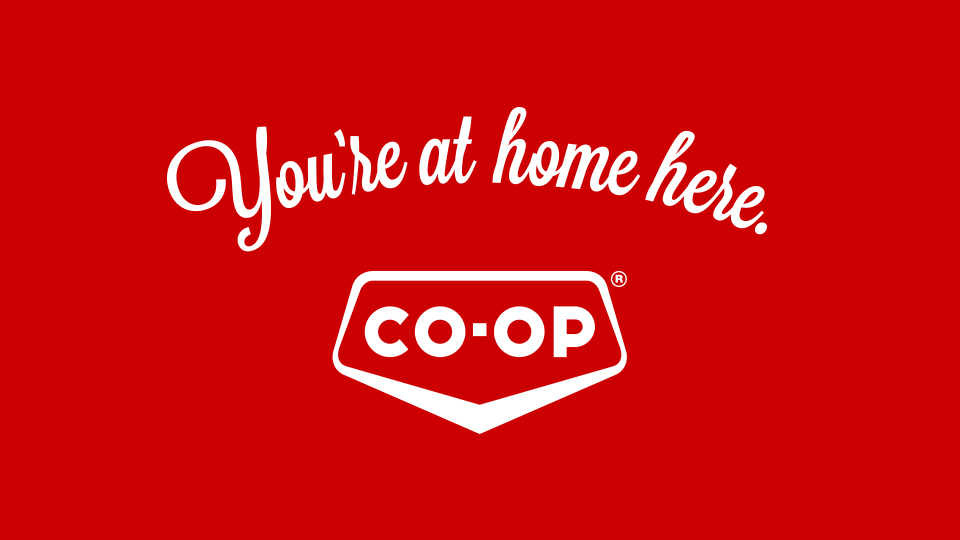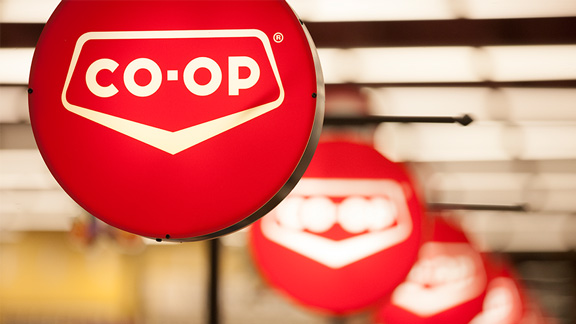Understanding Equity
 Understanding Equity
Understanding Equity

A Co-op membership is a little different. It means you own part of your local Prairie Sky Co-op and can share in its profits, through something called equity.
Each year, your local Co-op chooses to return part of its profits back to members as equity. The equity payout is determined annually by our local Board of Directors, and the amount you receive depends on how much you’ve shopped at your local Co-op and how well the business performed over the past year. Part of your equity may be paid to you as cash and the rest remains in your own equity account, which grows every time you shop at the Co-op!
Do all members qualify for Equity?
Only members who holds a Prairie Sky Co-op membership and shop at the Co-op will earn equity. The more you shop, the more you earn! If you are local to Weyburn, Beaubier, Lang or Milestone and don’t have a membership yet please apply for one.
What purchases qualify for equity?
Members earn equity on everyday purchases, like fuel, grocery, pharmaceuticals, liquor and more. Equity is not earned on buying gift cards and lotto.
When do I get my money?
Prairie Sky Co-op distributes cash repayments annually in June.
Equity withdrawals adhere to our local Co-op’s bylaws, allowing members to apply for:
• Equity down payment upon reaching 65 years of age.
• Estates
• Relocates outside our trading area
• Corporate business dissolves.
• Members in a care facility
For further details, please contact our administration office at office@prairiesky.crs . Or look online HERE for our Equity forms and information.
Can I earn equity when shopping at another Co-op who is not Prairie Sky?
Only if you have a membership with that co-op. Each Co-op is independent and these other Co-op associations will provide you with a unique member number, which ensures your purchases are tracked to your own personal equity account with them. There’s no limit to the number of Co-op memberships you can hold.
Why didn’t I receive any money this year?
If you didn’t receive any cash back this year, it is likely because you didn’t qualify for cash back, your spending was lower than the set amount to generate a cheque. The Board of Directors approve allocation percentages (%) each year for each business line we have. Your purchases for one fiscal year determine how much you will receive for your Total Allocation. After the Total Allocation has been established, the cash repayment allocation brackets determine your cheque value. The exception to consider is, we will not issue a cheque for less than $10.
Cash repayment Allocation brackets (your equity account balance)
$0-2,000 - 25% paid to you in cash back. 75% retained in your equity account.
$2,001-5,000 - 50% paid to you in cash back. 50% retained in your equity account.
$5,001-10,000 - 75% paid to you in cash back. 25% retained in your equity account.
$10,000 and over - 100% paid to you in cash back.
Seniors who have applied for their age paydown ($200 retained) will receive a cheque yearly if the allocation is over $10.
Why does GST appear on my equity statement?
The GST line on your equity statement represents the government sales tax associated with your payment allocation. If you’re registered for GST purposes, the portion of the GST related to business use must be included on line 104 of your GST return.
What is the Withholding Tax on my equity statement?
Patronage allocations over $100 are subject to a 15% withholding tax that is deducted and submitted to the Canada Revenue Agency on your behalf. You will receive a T4A statement that shows your total patronage allocation and the amount of tax withheld and remitted on your behalf.
When is a cheque considered stale-dated, and no longer valid?
Under Canadian Payments Association (CPA) Rule A4, Section 22, a cheque is considered stale-dated after six months. This amount is reversed back into your equity before the end of the fiscal year. When calculating future repayments, this amount will be included in your equity.
I received a T4A in the mail. Why did I receive this?
The T4A is from the Member Refund/Allocation that you received from the previous years' equity payout. It means that your refund was in excess of $100. The total on your T4A won’t match the cheque you received last year, though, since the refund included the cash and share equity you earned and received in the previous year. We’re required to report all refunds/allocations over $100, and to withhold and remit 15% of anything above that amount to the Canada Revenue Agency. Your refund isn’t necessarily taxable! Refunds from consumer goods/personal use (groceries, household items, gas for private car use, etc.) are not subject to tax. You are entitled to claim any withheld tax, whether taxable or not taxable income.
If your allocation was not over $100, you will not receive a T4A.
What do I do with my T4A?
Box 22, Income Tax Deducted:
The tax withheld and remitted to CRA is a direct benefit to all members and can be used as a prepayment of tax. Include the amount shown in Box 22 as part of “total tax deducted per information slips” on your income tax form.
Box 30, Allocation:
Consumer Goods (Personal Use):
If your purchases from Prairie Sky Co-op were for personal use only, the allocation is not taxable. You receive the benefit of the tax withheld but do not include the patronage allocation (Box 30) as part of your income.
Suggestion: Write “Consumer goods only” on the copy you are enclosing with your income tax return to avoid any confusion with the Canada Revenue Agency. If you are filing electronically, enter the non-taxable portion in the non-taxable box.
Business/Farm Purchases:
If you are claiming some or all of your purchases from Prairie Sky Co-op as expenses against income, then you must include the applicable portion of the allocation on your income tax form as taxable income. You receive the benefit of the tax withheld (box 22 of the T4A).
We advise that you consult with your accountant or tax preparer for the most accurate information regarding your T4A.
Is a corporate membership different than an individual membership?
Yes, since a corporation is a separate legal entity and its shareholders can change without impacting the holdings of the corporation, there are different considerations for a Corporate Membership:
• A corporation is separate from its shareholder(s) and does not age, therefore there is no provision of an overage payment of equity.
• A corporation is separate form its shareholder(s) and continues to exist and operate after the death of a shareholder, therefore there is no provision for an equity payment to an estate.
• A corporation whose corporate office permanently relocates or who ceases to operate within the Prairie Sky Co-op trading area may apply for withdrawal of equity with adequate documentation.
